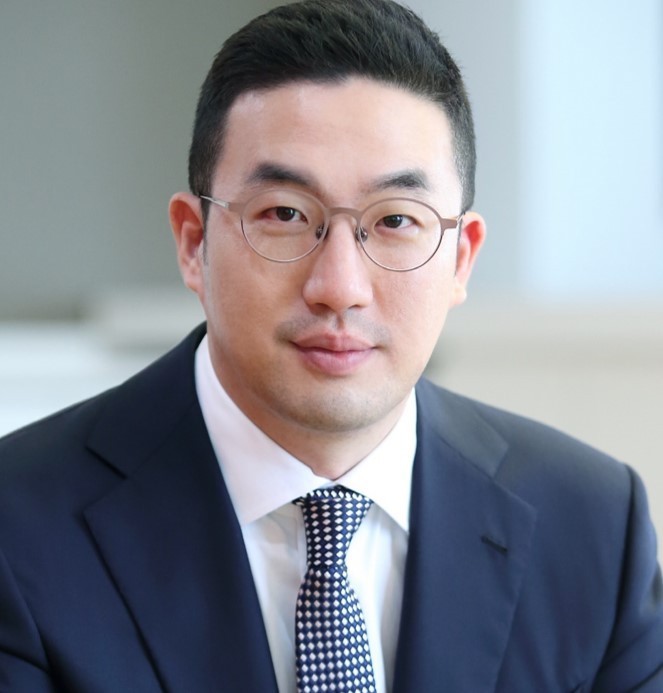LG Group Chairman Koo Kwang-mo marks two years Monday since he took the helm of South Korea’s fourth-largest conglomerate. Under his new and pragmatic leadership, the group has seen quiet but significant changes.
Koo became the new leader of LG on June 29, 2018, at the age of 40 after his father, Koo Bon-moo, passed away a month earlier. He inherited the group in the Confucian tradition whereupon the eldest son takes over the family business.
The late Koo’s management philosophy had been called the “right path” management. His famous remarks included, “If you are going to win the first place in dishonesty, you should rather win second place,” and “Companies cannot last without trust from the people.”
The philosophy has widely defined the corporate culture of LG, where diligence overtakes pomposity and genuineness is prioritized.
The new, young leader Koo Kwang-mo bore the burden of continuing this “right path” management and, at the same time, seeking survival in an ever more competitive global market. LG has no affiliate firmly in the No. 1 spot in the global market and no cash cow to stably generate revenue, like Samsung’s chips.
Over the past two years, Koo may have been reticent, but the changes he has brought were tenacious. Unlike the first year, which focused on identifying affiliates’ businesses, he began to show his colors with the “pragmatism” and “choose and focus” management style in the second year.
LG’s workforce went through sweeping generational change based on meritocracy. During the years, more than 100 new executives were selected and those with poor performance were laid off.
This year, the group’s regular hiring in the first and second half was abolished to be replaced with hiring year-round to increase the flexibility and agility of its organization.
The group’s nonmainstream units were closed down to secure funds for future business.
Last year, LG liquidated its fuel cell subsidiary LG Fuel Cell Systems, investments in which had been to develop next-generation fuel cells. The same year, LG Display withdrew from the lighting OLED business and LG Innotek closed down its money-losing high-density interconnection. This year, LG Chem sold its liquid crystal display polarizer business to a Chinese firm.
LG also sold its stake in Beijing Twin Tower, which was held by LG Electronics, LG Chem and LG Corp., to secure about 1.37 trillion won ($1.14 billion) in cash this year.
With the secured funds, the group is now expected to push for new deals in new growth engines, possibly in car parts, artificial intelligence or biotechnologies.
Over the past two years, LG has acquired new businesses, including US automotive adhesive maker Uniseal, local industrial robotic firm Robostar, local broadcasting company CJ HelloVision, Japanese cosmetics brand Evermere, US-based beauty company New Avon and Asian and North American business rights of European cosmetics brand Fisiogel.
The group is also strengthening investments in new technologies. LG Technology Ventures, a venture capital fund launched in Silicon Valley in 2018, has invested about 500 billion won in 18 promising global startups, including AI, robots and autonomous driving.
In preparation for “New LG,” Koo has stepped up his on-site leadership, meeting with employees and sharing his management philosophy.
Last month, he visited LG Science Park in Magok-dong, Seoul, and highlighted his new management strategy, urging them to “create a culture of challenge.”
“When you do nothing or do not challenge boldly, it may equal failure,” he said.
In February, he visited LG Electronics’ Design Management Center and discussed ways to enhance the quality of customer satisfaction through design. He told employees, “Design is the whole process of completing customer experience and impression.”
Koo is also expanding his network by meeting with business and political figures.
Last week, he met with Chung Euisun, executive vice chairman of Hyundai Motor Group, to discuss ways to cooperate in the battery sector for electric vehicles. It was their first official one-on-one meeting. The event was seen as a move to expand the “battery alliance” as well as strengthen business connections.
Currently, LG Chem’s batteries are used for Hyundai’s Kona Electric and Ioniq Electric.
In June last year, Koo held a one-on-one meeting with Saudi Arabia’s Crown Prince Mohammed bin Salman, who visited South Korea. During the meeting, they reportedly discussed partnerships in the field of home appliances.
A month later, he also met with Japan’s Softbank Chairman Masayoshi Son, also known as Son Jeong-ui, to discuss business issues related to the “fourth industrial revolution” and ways to cooperate. In November, four months after the meeting, LG’s four major affiliates -- LG Electronics, LG Chem, LG Uplus and LG CNS -- decided to jointly invest some 20 billion won in a 320 billion-won fund created by Softbank Ventures in the AI sector.
By Shin Ji-hye (
shinjh@heraldcorp.com)








